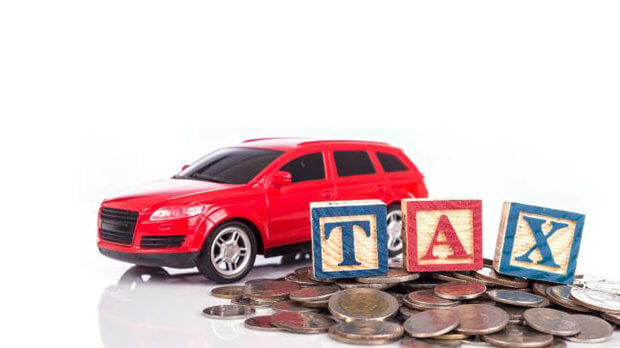Irish motorists may be taxed on distance driven rather than excise on fuel


The government is considering changing the tax take from motorists to include a fixed charge on the purchase of all cars. We may also be taxed on the distance we travel in our cars rather than paying excise on fuel at the petrol station.
As a result of lower emission vehicles coming on the market, the Government is considering different schemes to ensure that the overall tax take from motoring does not drop significantly.
The Department of Finance has outlined its future plans so that the exchequer does not lose out in taxes. They will consider a fixed charge on the purchase of every car, no matter how low its emissions levels are.
The motoring tax policies in recent years have been specifically designed to encourage motorists to purchase lower emission vehicles, which are subject to lower vehicle registration taxes (VRT) and annual motor tax.
Officials are now warning that, although lower emissions will still be incentivised, the move towards such vehicles, particular electric-powered cars, will “severely challenge the revenue” accrued by the exchequer through VRT, excise and motor tax.
A significant proposal which the government is looking at, is to tax motorists on the distance they drive. This idea was mooted when the VRT scheme changed over ten years ago but it is understood a predicted backlash from TDs in rural and commuter belt counties stopped the proposal from advancing but this could change in the future if there is no opposition.
The Taoiseach Leo Varadkar has stated that they are planning to raise carbon taxes in the October budget, saying the State will have to “grasp the nettle” to reach its climate-change commitments.
The most significant changes being mooted by the Department of Finance outlines a number of longer-term proposals to ensure motoring still generates taxes for the State. They plan to get away from reliance on excise at the pumps to taxes based on how much people travel on Ireland’s roads. Government documents state:
“In relation to replacing fuel excise duties, the possibilities of shifting taxes to road usage should be considered in the context of the uptake of EVs [electric vehicles] or ‘super low’ emission vehicles,”
The policy documents do not go into too much detail, but we are not left in any doubt that the government plans to make significant changes to its policies on motor taxation. The idea of charging for road usage based on distance travelled has been proposed at EU level and is already in place for trucks in a number of member states.
These changes would see the VRT system being reformed too, for example, a fixed charge of 2.5 per cent of the purchase price of a car, as calculated by the Revenue Commissioner, as well as variable charges.
A minimum rate of VRT of 10 per cent on the value of a car would also apply to ensure that cars with the lowest emissions still pay a certain level of tax, ensuring that income to the State remains stable.
“The purpose of a fixed-charge component and the minimum rate would be to protect the exchequer from losses due to very low emitting CO2 cars,” officials say. It would still “broadly mirror the current regime insofar as rates is concerned”.
Environmental taxes in Ireland are projected to take in €3.55 billion this year. Excise rates on petrol and diesel have remained unchanged since 2012, with 58.7 cent excise and a 4.6 carbon charge on a litre of petrol. The corresponding rates for diesel are 47.9 cents and 5.3 cents.
The Department of Finance tax strategy papers, which include the study of environment tax, says there is a “strong environmental rationale” for eliminating this gap.
Author

Justin Kavanagh
Justin Kavanagh is a recognised leader
in automotive intelligence and vehicle
data supply to the entire motor industry.
He has almost 20 years experience in
building systems from the ground up.
As the Managing Director of Vehicle
Management System, he understands the
need and importance of trustworthy and
reliable vehicle history and advice to
both the trade and the public.
Follow me on LinkedIn